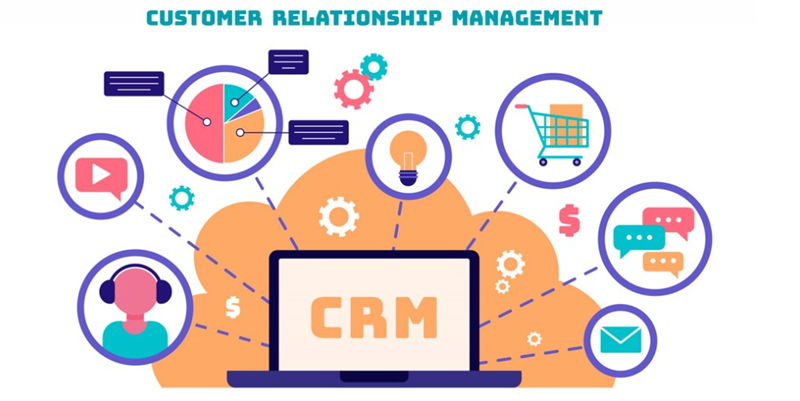In today’s digitally-driven business landscape, Customer Relationship Management (CRM) tools have become indispensable. These tools streamline processes, enhance customer interactions, and drive business growth. However, to harness the full potential of CRM software, it is crucial to prioritize data security. This article provides a comprehensive guide on implementing strong security measures in CRM systems to protect sensitive customer data.
Selecting the Right CRM Development Company
When implementing CRM software for your business, selecting the right CRM development company is paramount. The expertise and experience of the company play a crucial role in the successful implementation of a secure CRM system. Factors such as reputation, track record, and their ability to understand your business needs should be considered when choosing a CRM development company.
Implementing Strong User Authentication Methods
Preventing unauthorized access to your CRM system is vital to safeguarding customer data. Robust user authentication methods, such as multi-factor authentication, should be implemented. By requiring users to provide multiple pieces of evidence to verify their identity, the risk of unauthorized access is significantly reduced.
Regularly Updating and Patching CRM Software
Regular software updates and patches are essential to address security vulnerabilities in CRM software. Developers frequently release updates to address discovered vulnerabilities, and it is crucial to stay up to date with these releases. Failure to update your CRM software can leave your system susceptible to potential attacks.
Defining User Permissions and Limiting Access to Sensitive Data
To protect customer privacy, it is crucial to define user permissions and restrict access to sensitive customer data. Only grant access privileges to personnel who genuinely require such information to carry out their duties. By limiting access to sensitive data, you minimize the risk of unauthorized exposure or misuse.
Utilizing Encryption Protocols for Data Protection
Encryption plays a pivotal role in securing customer data. Utilize encryption protocols to protect customer data both in transit and at rest. Implementing robust encryption algorithms ensures that even if data is intercepted or stolen, it remains unreadable and useless to unauthorized individuals.
Implementing Regular Data Backup Procedures
Data loss can spell disaster for any business. Thus, it is essential to implement regular data backup procedures. Regularly backing up your CRM system ensures that even if unforeseen events occur, such as hardware failure or cyberattacks, you can restore your data and continue operations without significant disruptions.
Training Team Members on Data Security Best Practices
Human error is a common cause of data breaches. Hence, it is crucial to train your team members on data security best practices. Educate employees on the importance of safeguarding customer data, teach them how to identify and report suspicious activities, and provide guidelines for secure password management and safe data handling.
Implementing Monitoring and Auditing Systems
Implementing a monitoring and auditing system within your CRM software allows you to track user activities. Monitoring user behavior can help identify and address potential security breaches promptly. Furthermore, auditing user actions provides valuable insights into the security of your CRM system and enables you to take proactive measures to further enhance data protection.
Staying Informed About Data Protection Regulations
Data protection regulations are constantly evolving, and businesses must stay informed and compliant. Ensure that your CRM processes align with current data protection regulations, such as the General Data Protection Regulation (GDPR) or the California Consumer Privacy Act (CCPA). Staying up to date with regulatory requirements protects your customers’ privacy and helps avoid legal complications.
Implementing strong security measures in CRM systems is crucial to protecting sensitive customer data. By carefully selecting the right CRM development company, implementing strong user authentication methods, regularly updating and patching CRM software, defining user permissions, utilizing encryption protocols, implementing regular data backup procedures, training team members, implementing monitoring and auditing systems, and staying informed about data protection regulations, businesses can fortify their CRM systems against potential security breaches. Prioritizing data security not only safeguards customer trust but also ensures compliance with privacy laws, thereby paving the way for successful and secure CRM implementation.

